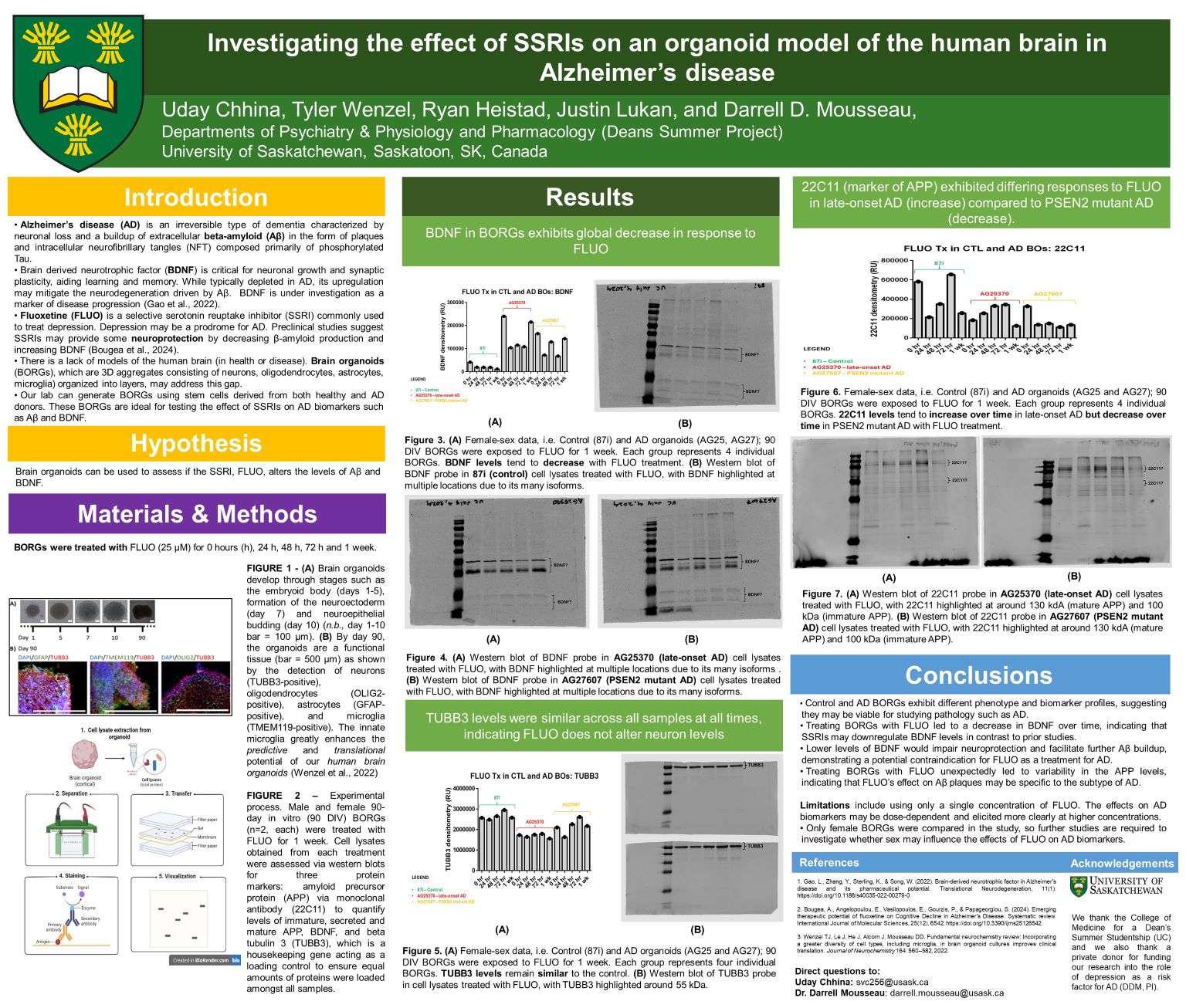
Investigating the effect of SSRIs on an organoid model of the human brain in Alzheimer’s disease
Uday Chhina
Alzheimer’s disease (AD) is an irreversible dementia that leads to neuronal loss, caused by buildup of beta-amyloid (A13) plaques. Brain derived neurotrophic factor (BDNF) supports learning and memory by maintaining synaptic plasticity, and is a biomarker typically depleted in AD. SSRIs, like Fluoxetine, have been mainstays in treating depression but there is limited knowledge on their efficacy for reversing the neurodegeneration in AD. Brain organoids (BORGs) are 3D aggregates consisting of both neurons and glial cells, and we hypothesized that they could be used to assess the effects of SSRIs on AD biomarkers such as BDNF and A13. Male and female BORGs derived from both healthy and AD donors were grown for 90 days and treated with Fluoxetine for 1 week, and then tissue lysates were assessed for various AD biomarkers via western blotting. Treatment results show that Fluoxetine decreases BDNF over time and exerts variable effects on A13 based on the AD subtype. Overall, BORGs may be an applicable model to study neurodegenerative diseases and associated treatments like SSRIs. Future studies should utilize multiple concentrations of SSRIs and check if biological sex modifies the effects of SSRIs on AD biomarkers.
